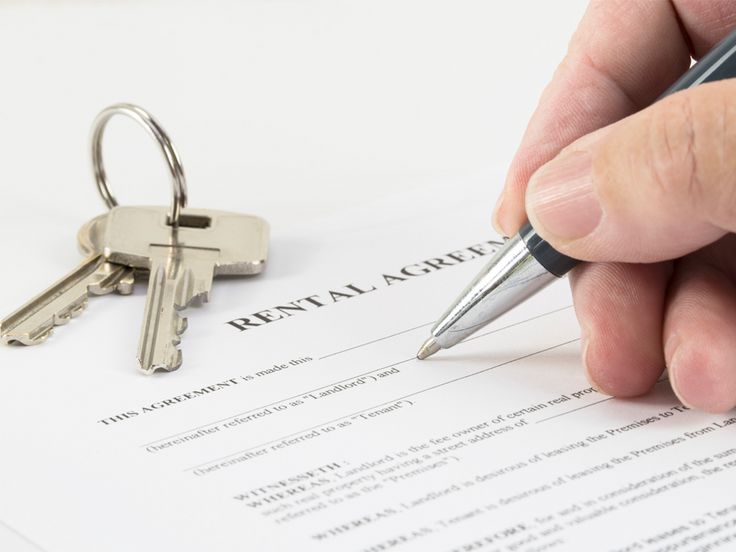



When it comes to property transactions, real estate lease agreements are essential documents that serve as the backbone of any rental relationship. Whether you’re a landlord looking to rent out your property or a tenant seeking a place to call home, understanding the intricacies of these agreements can save you time, money, and legal headaches. In this blog post, we’ll explore everything you need to know about real estate lease agreements, from their basic structure to common clauses and legal implications. Let’s dive into the key aspects that every landlord and tenant should be aware of.
A real estate lease agreement is a legally binding contract between a property owner (landlord) and a tenant that outlines the terms and conditions under which a property is rented. These agreements are crucial in protecting the interests of both parties, ensuring clear communication, and preventing disputes. Whether you’re renting residential or commercial property, understanding the key components and legal implications of a real estate lease agreement is essential.
A well-structured lease agreement typically covers several important aspects:

Lease agreements are governed by state and local laws, which can vary significantly. These laws often cover aspects like rent control, eviction procedures, and tenant rights. Both landlords and tenants must understand these legal requirements to ensure compliance and avoid potential disputes.
For landlords, a solid lease agreement is vital for protecting their property and income. For tenants, understanding the lease terms can prevent unexpected costs or legal troubles. Consulting with a real estate attorney when drafting or signing a lease agreement is advisable to ensure all necessary protections are in place. Real estate lease agreements are foundational documents that set the expectations and obligations of both landlords and tenants. By clearly outlining terms related to rent, property use, and maintenance, these agreements help foster positive and conflict-free rental relationships. Whether you’re a landlord drafting a lease or a tenant reviewing one, taking the time to understand the details can save you from potential disputes and ensure a smooth leasing experience.
There are several types of real estate lease agreements available, each catering to different needs:
Understanding which type of lease suits your situation can help you avoid legal complexities and ensure that the agreement aligns with your needs.
For More Information click here
Many people, both landlords and tenants, overlook certain aspects of real estate lease agreements, leading to costly mistakes. Some common pitfalls include:
By paying close attention to these details and consulting with a legal professional, you can avoid common errors that lead to unnecessary conflict.

One of the most significant parts of a real estate lease agreement is the security deposit. This sum, typically equivalent to one or two months’ rent, acts as insurance for the landlord against property damage or unpaid rent. The lease agreement should clearly specify:
Knowing these details upfront helps both parties protect their financial interests and reduces the chance of disputes.
Breaking a real estate lease agreement is a serious matter that can have financial and legal consequences. Tenants may face penalties, such as losing their security deposit or being held responsible for the remainder of the lease term. Landlords, on the other hand, must follow specific procedures if they need to terminate a lease early. Common scenarios where lease-breaking might occur include:
Understanding your rights and responsibilities in these situations is crucial for minimizing the fallout from breaking a lease.
Every real estate lease agreement should include key clauses that protect both parties:
These clauses ensure that both landlords and tenants are clear on their obligations, reducing the risk of legal disputes down the road.

Negotiating a real estate lease agreement doesn’t have to be intimidating. Whether you’re a landlord or tenant, knowing your priorities and being prepared to compromise can lead to a win-win situation. Tips for successful lease negotiation include:
Effective negotiation ensures that both parties enter the lease agreement satisfied with the terms.
Understanding real estate lease agreements is essential whether you’re renting out your property or looking for a place to live. By familiarizing yourself with the types of leases, key clauses, and common pitfalls, you can protect your interests and ensure a positive rental experience.
Q1: What is a real estate lease agreement? A real estate lease agreement is a legally binding document between a landlord and tenant that outlines the terms and conditions for renting a property. It typically includes details such as rent amount, lease duration, and responsibilities for maintenance and repairs.
Q2: How is a real estate lease agreement different from a rental agreement? While both terms are often used interchangeably, a real estate lease agreement usually refers to a longer-term contract (e.g., one year), while a rental agreement typically refers to a month-to-month arrangement.
Q3: Can a real estate lease agreement be modified after signing? Yes, but any modifications must be mutually agreed upon by both the landlord and tenant and should be documented in writing as an addendum to the original lease.
Q4: What happens if a tenant breaks a real estate lease agreement early? If a tenant breaks the lease early, they may face financial penalties, such as losing their security deposit, or they could be responsible for paying the remaining rent due under the lease, depending on the terms.
Q5: Can a landlord increase rent during the lease term? Generally, a landlord cannot increase rent during the fixed term of a lease unless the lease agreement specifically allows for it. Rent increases are more common in month-to-month rental agreements.
Q6: Is a verbal lease agreement legally binding? While verbal lease agreements can be legally binding, they are difficult to enforce in court due to the lack of documented evidence.
Q7: Can a real estate lease agreement include a pet clause? Yes, many lease agreements include clauses regarding pets, specifying whether they are allowed and any additional deposits or fees that may apply.
Q8: What are the typical lease terms for commercial real estate? Commercial leases can vary significantly, but common terms include multi-year contracts with specific clauses related to property use, rent increases, and renewal options.
Q9: Who is responsible for repairs in a real estate lease agreement? Responsibility for repairs should be outlined in the lease agreement. Generally, landlords handle structural and major repairs, while tenants are responsible for minor maintenance.
Q10: What is a sublease agreement? A sublease agreement allows the tenant to rent out the property (or part of it) to a third party while still being responsible to the landlord under the original lease agreement.
Q11: Can a landlord enter the rental property without notice? Most states require landlords to give notice (usually 24 to 48 hours) before entering a rental property, except in emergencies.
Q12: What are the legal grounds for evicting a tenant? Common grounds for eviction include non-payment of rent, lease violations, and engaging in illegal activities on the property.
Q13: What should be included in a security deposit clause? The security deposit clause should specify the amount, conditions for withholding, and the timeframe for returning the deposit after the lease ends.
Q14: How can disputes over a real estate lease agreement be resolved? Disputes can be resolved through mediation, arbitration, or legal action. Some lease agreements include a clause that specifies how disputes will be handled.
Q15: What is the difference between a gross lease and a net lease? In a gross lease, the landlord covers most property expenses (e.g., taxes, maintenance), while in a net lease, the tenant pays for additional expenses like utilities and property taxes.
Q16: Can a real estate lease agreement include automatic renewal? Yes, some lease agreements include an automatic renewal clause unless either party provides notice of termination within a specified period.
Q17: What is an option to purchase in a lease agreement? An option to purchase allows the tenant to buy the property at a predetermined price during or at the end of the lease term.
Q18: Are real estate lease agreements subject to local laws? Yes, real estate lease agreements must comply with local, state, and federal laws, including those related to rent control, security deposits, and tenant rights.
Q19: How long should lease agreements be kept after they expire? It’s advisable to keep a copy of expired lease agreements for at least a few years, as they may be needed for tax purposes or in case of legal disputes.
Q20: Can a lease agreement be terminated before the lease term ends? A lease can be terminated early under specific conditions, such as mutual agreement, breach of contract, or if specified in an early termination clause.
For More Information click here